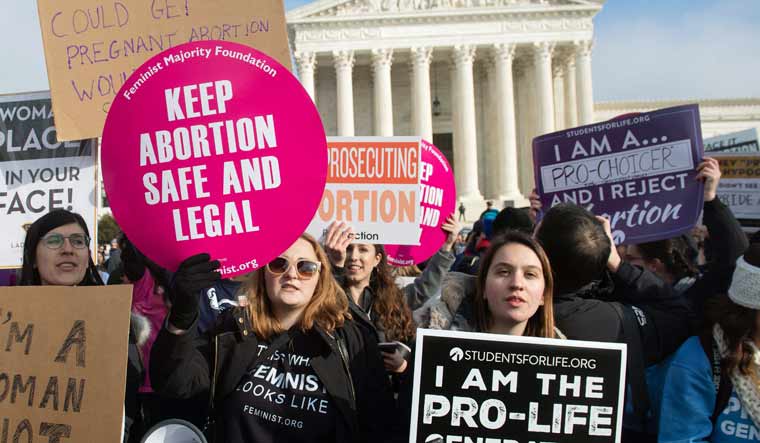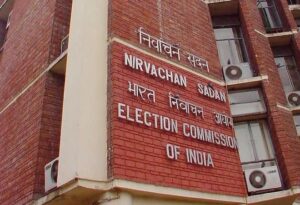Women’s Reproductive Rights In The Shadow Of Roe V. Wade Verdict

Twenty-six US states (out of the 50) are certain or likely to ban abortion and in at least 13 states, the ban comes into effect quickly. Women and girls are now law-breakers if they seek an abortion in these states
If today, someone were to conduct a survey into which country has a better gender rights ratio, with women afforded more autonomy about decisions they make about their own bodies and the options were India or the United States, a vast majority of opinions are likely to go with the US. However, after what has happened in the US on June 24, 2022, the above belief may no longer be true.
On June 24, the Supreme Court of the United States (SCOTUS) overturned the landmark Roe v. Wade case, which had, since 1973, guaranteed abortion as a constitutionally protected right to women in the US.
This verdict brings into question women’s sexual and reproductive rights and whether all the brouhaha over women’s rights in the US and other Western nations is limited to sartorial choices alone (these too rapidly being compromised). It has repercussions for women’s sexual self-determination and the fundamental question of accessing and exercising rights over their own bodies.
Around 40 million women of child-bearing age live in US states where accessing abortion will become tougher and concomitantly, could lead to a rise in unsafe abortions. Twenty-six US states (out of the 50) are certain or likely to ban abortion and in at least 13 states, the ban comes into effect quickly. According to the Guttmacher Institute, a research organisation that supports abortion rights, the restriction of abortion would translate into an increase in unsafe abortions, a threat to the lives of women and dire physical and mental health consequences for them.
It denies women their most basic right and endangers their sexual self-reliance like no other judicial decision before.
In its watershed ruling, the SCOTUS said, “The Constitution does not confer a right to abortion;… and the authority to regulate abortion is returned to the people and their elected representatives.” The 6-3 verdict echoed a draft opinion leaked in early May claiming that the SCOTUS would vote to strike down the right to abortion.
The U.S. has now joined only three other countries — El Salvador, Nicaragua and Poland — that have rolled back abortion rights since 1994 and it is among the richest and most influential nation to have done so.
Michelle Bachelet, the UN High Commissioner for Human Rights, has stated that the verdict represents a “major setback” for sexual and reproductive health across the US. The World Health Organisation and the UN sexual and reproductive health agency (UNFPA) have taken note of the fact that 45% of all abortions around the world are unsafe and make the procedure a leading cause of maternal death.
This ruling has also thrown up the prospect that the US may now regrettably emulate the path Ireland was on between 1983 and 2018, when the extant Irish law — banning abortion — caused long-term suffering to many Irish women. One of the most well-documented cases there was that of Savita Halappanavar, a dentist of Indian origin, living in Ireland, who died from sepsis after her request for an abortion was denied on legal grounds.
With the overturning of the Roe v Wade case, activists are already apprehensive that the judgment could have a domino effect on other rights like same-sex marriage and contraception.
Meanwhile, in India, the challenges posed by the 15.6 million abortions each year are unique. India amended the Medical Termination of Pregnancy (MTP) Act 1971 in 2021 to provide comprehensive abortion care to all across the board. The new Medical Termination of Pregnancy (Amendment) Act 2021 expanded the access to safe and legal abortion services on therapeutic, eugenic, humanitarian and social grounds. Among the key changes introduced by the Act were the right to terminate unwanted pregnancies caused by contraceptive failure, regardless of a woman’s marital status.
One of the major reasons the verdict by the SCOTUS has resonated with so many women is the domino effect any decision on women’s bodily autonomy in the US could have across the world. There is a high likelihood that given the widespread influence the US commands, this decision could stigmatise reproductive health and jeopardise women’s sexual well-being.





